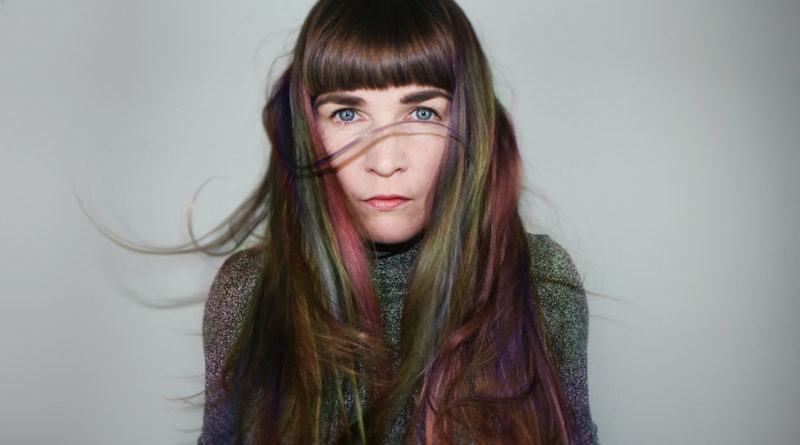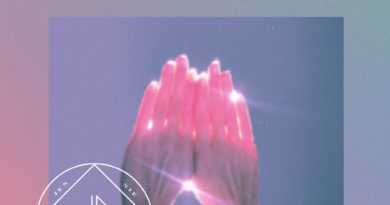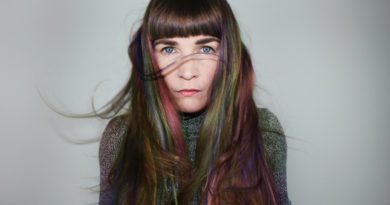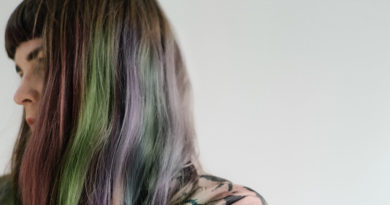Jennie Abrahamson: “Reverseries is a made up word which represents the album”
INTERVIEW – Jennie Abrahamson releases her 5th album Reverseries, and it’s a beautiful invitation to dream. A nice reason for us to interview Jennie and talk about being an independent singer, a woman in the music industry and of course her new album.
Before talking about your new album, I would like to ask you some questions about the Swedish music, because it is one of the greatest and biggest in the world.
Rocknfool: With around 9 millions of residents, Sweden is a small country, but musically it’s a big one. It’s the 3rd music exporter, after the US and UK. How do you explain that?
Jennie Abrahamson: I think it’s all down to role models. It’s like when Ingemar Stenmark was really successful in alpine skiing, or Björn Borg at tennis – others came after. We’ve had so many artists who have been internationally successful early on, as with ABBA for example. I think that sort of makes it ok to dream about and suddenly young people start taking it for granted, but in a positive way, that big success is within reach. Of course I think that it has something to do with a great melodic tradition – making efficient pop music is suited to Scandinavian. And nowadays, with the great influence of our newer inhabitants, I think that it has pushed the edges of Scandinavian music even more.
There was really a rise of independent women who have helped re-create the musical landscape in Sweden
There is a big independent scene too. I’m thinking more particularly to the feminine and feminist scene: Nina Kinert, Linnea Olsson, Rebekka Karijord, Ane Brun, Frida Hyvonen. They are your friends and, more or less, you have all played together. Could you say that all together, you’ve allowed the emergence of the feminine music in Sweden?
It would be big words for me to take on, as I’m part of the group you’ve just mentioned. But yes – I think we’re part of something. There are many more than us though, but of course I take a lot of strength and inspiration from those I am closest to. I definitely feel that we – and several others – have had a momentum in creating our own careers, supporting each other in taking pretty independent and artistically free choices. And, as I said in the very first question above, role models are important. If you see others succeed, you learn that there’s a way. That is of course a mindset too – not being intimidated by others succeeding, but rather be inspired by them. I think we’ve all succeeded in that.
Do you think it’s easier to be a woman in the musical industry when you are living in Sweden, or not?
Sweden is, all in all, very supportive of feminist ideas. But the music business is what it is – a business – and changing the ideas of what sells and what works have been pretty slow here too. I think there have been big changes in the major companies in Sweden though just over the last three or four years, which is welcomed. Though, in respect to those names you mentioned in your previous question, there was really a rise of independent women who have helped re-create the musical landscape in Sweden. I think that has been a very feminist movement.
Could you say that your music is feminist?
I don’t know. I am a dedicated feminist, sometimes I write about it, I write, produce and own my own music, I am the sole leader of my band. In that, my feminism breathes through all that I do and my work. But the music is music, I don’t always like the idea of labeling it. It must be able to stand for itself.
When we listen to dreampop music, we have to admit that Sweden is the best country. We always recognize a dreampop artist coming from Sweden (You, Nina Kinert, The Knife, Jonathan Johansson, Amanda Mair, and more). We can hear a kind of Swedish sound. How do you explain that?
I strongly believe we’re influenced by the four seasons, and for a lot of us, by coming from the Northern part – the amount of darkness we’re surrounded by all through autumn to spring. It brings some sort of melancholy or darkness into music that can seemingly be sweet or happy. There’s always some dirt around the corner, which I think deepens the feeling. Regarding the season changes – I think such big changes have brought a sort of an emotional boost in every transition. Maybe that’s what we’re bringing into the music…
Let’s talk about your new album : Reverseries. You said that “you have written these new songs in reaction of the exhaustion you had, after the long tour with Peter Gabriel”. What did you mean?
It wasn’t just the Gabriel tour that exhausted me! I had been touring massively after my previous album, plus done a few month long tours with Peter, and I was studying psychology full time at the Stockholm University. At the same time. It was a horribly stupid idea to try and pull together all of that at once. Once the semester and the touring was over, last summer, I intended to start writing the new album. I went to the studio every day for three weeks and just fell asleep… before realizing this was not a very good idea. I took the summer off instead, and re-started in the autumn.
Reverseries is a made up word, out of a few different words that I felt represented the album and the lyrical themes.
Where did you record this album, and could you tell us more about the conditions of this recording.
I worked alongside Linnea Olsson, as we share a working space, so she was in the other room writing on her new EP’s. We had our lunch together, and went in and out of each others rooms to listen to recordings and give each other ideas. It felt very safe and creative. I’m glad I made that time for myself, to try and write without the stress involved. And though I started out wanting to write something effective with hit-potential, something a bit shorter, maybe an EP or two, I ended up with my longest album to date. 10 songs over 54 minutes in the final product. That sort of reflects my non-efficient mood that autumn, I needed slowness. When I then took the songs to the band, we didn’t try to make them more efficient, we just stayed in the songs. Everything was rehearsed and recorded live together with my brilliant band during two weeks, and then me and my co-producer Johannes Berglund worked on it for some more time to finish the product.
Your new album is titled Reverseries. What does it mean?
Reverseries is a made up word, out of a few different words that I felt represented the album and the lyrical themes. Reverse, reveries, stories, etc. I just liked the idea of the album having its own identity, something that was truly unique. I asked a lot of my English speaking friends how they’d interpret the word, and got the most lovely suggestions. All pointing in the direction I wanted.
If I am not wrong, you are still signed in the independent label “How Sweet the Sound”? What does it mean to you, to stay an independent artist?
“How Sweet the Sound” is my own label, I started it back in 2007 when I released my solo debut, so I’m truly “self-owned”. After I started out, I realized administration was hell, but I loved the freedom of being able to do anything I wanted whenever I wanted to. I didn’t even try to reach out to other labels until this, my fifth album. Things have been growing for me with every album and this time I felt I can’t do it all alone, so I sent out a few songs early on in the process to see if there was any interest. I got very positive feedback, but the ideas that people had for how to label and sell me was just really discouraging. I felt I didn’t belong in an environment where you’re stuck in such narrow thinking, and felt it was more important than ever that I maintained my own ideas. I’m glad to have found a middle-way with Kartel Music in the UK, who works as my label managers and gives me input and ideas and takes care of a lot of the dull stuff.
The government in Sweden said “we will help these people, our borders will remain open” and then we shut our borders
As with the previous albums, you have recorded a beautiful dreampop album. The lyrics are still melancholic, but contrary to your previous albums, it sounds musically more punchy, dancing and happy. Could we say there are two visions of your album: the optimistic (with the music) and the pessimist (with the lyrics)?
Oh, I’m happy to read your interpretation of it! I’ve never really thought of it that way, but yes, maybe… I love it when there is contrasts in music, when happy and sad goes hand in hand… “Happy” in itself was not really an element I intended to place on the album, but on the other hand, one of my greatest inspirations when I was doing the demo’s was Donna Summer’s “State of independence”! That bass sound is just killing me. And maybe, come to think of it, it’s the definition of “happy”. So we blame Donna for the happiness in the album.
I know some Swedish journalists told you too, but “Not in my name” is a very beautiful song: a nice intro with the piano, then your voice repeating “Not in my name” and an electronic part, to conclude. We hear (maybe for the first time) a kind of political lyrics in your album. Am I wrong and could you tell more about this song?
Thank you! I wouldn’t say it’s my first political song, I’ve had a few before, and it’s not the only political song of this album (we also have “Safe tonight” and “Anyone who”) – but it is definitely the most outspoken one, the one that would be the hardest to misinterpret. Last autumn, when I was in the middle of the writing process, was quite tough on a societal level. You could tell it was affecting everyone. People were fleeing for their lives from a brutal war, coming to us for safety, and the people here didn’t really know how to deal with all their privileges and their fear and their willingness to help or be good, so a lot of people just shut down. A lot of people turned up too, helped out, started homes where refugees could rest before continuing their journeys, protested… and the government in Sweden said “we will help these people, our borders will remain open and we cannot turn our backs”. And then – boom – we shut our borders. That was something that shocked a lot of us, such a saddening choice in a time where children are dying in the Mediterranean when their parents try to bring them to a safer life. It’s like we don’t want to know what’s going on, or think we have no dealing with it. That change was not in my name. It felt important for me to state that.
The last song of Reverseries is a cover of the Bruce Springsteen song, “Lift me up”. It’s a perfect occasion for me to play to the Proust Questionnaire, I love to do that in the interview, in order to know better the artists.
What is the first album that you have bought in your life?
Tears for Fears – Seeds of love.
What is the first concert where you went to?
The first real show: U2 in the Globe Arena in Stockholm on the Zoo TV Tour, after they had released Achtung baby (in 1992). My big sister took me there as a birthday gift, I was completely over the moon.
What is the last album that you’ve listened to?
Probably James Blake’s latest, Solange’s latest or fellow Swedish artist Algesten’s solo debut, those are the three that circulates most at home right now.
What is the last concert where you went to?
A Swedish icon – Eva Dahlgren – when she played Stockholm recently. My whole band is part of her touring band now, so it was fun for a lot of reasons. Brilliant show.
Who is your favorite Swedish band or singer?
I have so many! Ok, but right now it’s Algesten. If I may choose only one.
And for non-Swedish band or singer, who is your favorite?
Oh, I hate choosing favorites, sorry… I suck at it. My music taste is so wide and diverse, I really never just dig into one person’s or the band’s catalogue. I have a lot of favorites, let’s just leave it at that.
Who is the artist whose you are a bit jealous of his/her talent?
Oh, several! FKA Twigs for her stylishness and ability to dance, Solange for her cool beauty and visual imagery. PJ Harvey for being the definition of cool + creating amazing music. And the list goes on…
What is the musical discovery that you have recently made and you would like to share with us?
It’s not entirely a new discovery for me, but Mariam the Believer (Mariam of Wildbirds & Peacedrums) has released a beautiful new single called “Crust”. Though I’m still also completely hooked up in her “old” song “To conquer pain with love”, one of the most beautiful songs ever.
Interview by Renaud
► Reverseries, Jennie Abrahamson’s fifth album, out February 24 (France), via How Sweet The Sound.
READ MORE :
>> La minute Viking #4 : Jennie Abrahamson (Suède)
>> La minute Viking #11 : Linnea Olsson (Suède)




